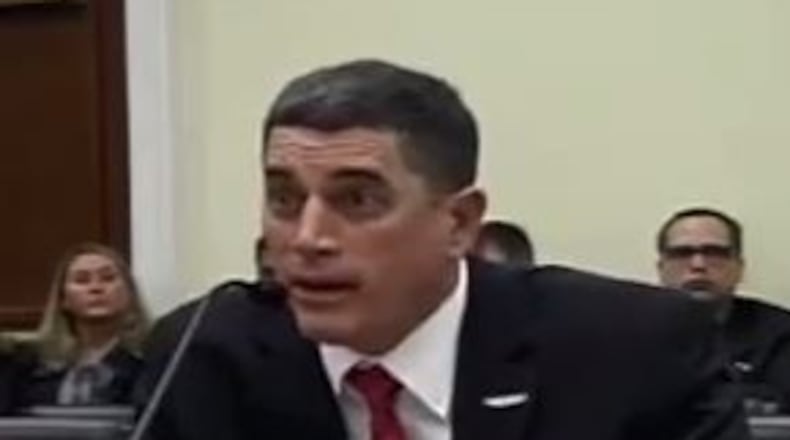Lawmakers in both parties used a Congressional hearing to give a stern warning to the head of the IRS on Wednesday, demanding that the tax agency end its practice of seizing huge amounts of money from law-abiding businesses for the simple act of depositing cash in their bank accounts.
"I was never so afraid in my life, not even in combat," said Andrew Clyde, who runs a gun store in Athens, Georgia, as he described how he felt when two IRS agents showed up at his door, saying they had seized $940,213 from his company's bank account.
"I trembled when they left," Clyde said in his testimony.
The agents told Clyde that he had likely committed a felony by making cash deposits of less than $10,000 - that's the limit set by the feds over which the IRS must be notified - all to help uncover money laundering and other legal activities.
But Clyde - and others who testified - said they had done nothing wrong, and the IRS knew that.
"A felony, how could this be a felony?" Clyde asked. "I was just depositing my own hard earned and legally earned cash in the bank. How can that be a felony?"
"It just looked like they were fishing for anything they could," said Jeff Hirsch, who runs a company that distributes food and other products to convenience stores outside of New York.
"There wasn't anything there," Hirsch said.
In Hirsch's case, the IRS seized $446,611 from his bank account, alleging that he had "structured" his cash deposits to avoid the $10,000 federal reporting requirement.
"Prior to reading the warrant, I had never heard of the concept of “structuring” and had no idea that depositing cash in amounts
under $10,000 could ever be against the law," Hirsch told a House committee.
Hirsch accused the IRS of giving him and his lawyers "the run-around" - just as with the gun dealer from Georgia, the feds did not accuse Hirsch of any wrongdoing.
The stories left lawmakers aggravated.
"The IRS grabbed these taxpayers by the throat and squeezed them," said Rep. Peter Roskam (R-IL), as members of both parties vented their frustration to IRS Commissioner John Koskinen at the same hearing.
Koskinen told lawmakers that IRS agents have been instructed to stop these type of bank account seizures - if someone has committed no wrongdoing, like the stories told at Wednesday's hearing.
"In this country, people are supposed to be innocent until proven guilty," Hirsch told lawmakers.
"But, in the eyes of the IRS, I was guilty until proven innocent—forced to prove my own innocence to get my property back," he added.
"I did not serve three combat tours in Iraq only to come home and be extorted by my government's use of civil forfeiture laws," Clyde said.
"The concerns are legitimate," Koskinen acknowledged.
About the Author
The Latest
Featured



